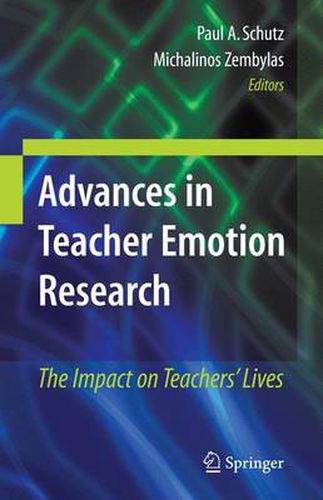Readings Newsletter
Become a Readings Member to make your shopping experience even easier.
Sign in or sign up for free!
You’re not far away from qualifying for FREE standard shipping within Australia
You’ve qualified for FREE standard shipping within Australia
The cart is loading…






This title is printed to order. This book may have been self-published. If so, we cannot guarantee the quality of the content. In the main most books will have gone through the editing process however some may not. We therefore suggest that you be aware of this before ordering this book. If in doubt check either the author or publisher’s details as we are unable to accept any returns unless they are faulty. Please contact us if you have any questions.
Some reports estimate that nearly 50% of teachers entering the profession leave within the first five years (Alliance for Excellent Education 2004; Ingersoll, 2003; Quality Counts 2000). One explanation of why teachers leave the profession so early in their career might be related to the emotional nature of the teaching profession. For example, teaching is an occupation that involves considerable emotional labor. Emotional labor involves the effort, planning, and control teachers need to express organizationally desired emotions during interpersonal transactions. As such, emotional labor has been associated with job dissatisfaction, health symptoms and emotional exhaustion, which are key components of burnout and related to teachers who drop out of the profession. Research into emotional labor in teaching and other aspects of teachers’ emotions is becoming increasingly important not only because of the growing number of teachers leaving the profession, but also because unpleasant classroom emotions have considerable implications for student learning, school climate and the quality of education in general.
Using a variety of different methodological and theoretical approaches, the authors in this edited volume, Advances in Teacher Emotion Research: The Impact on Teachers’ Lives, provide a systematic overview that enriches our understanding of the role of emotions in teachers’ professional lives and work. More specifically, the authors discuss inquiry related to teachers’ emotions in educational reform, teacher identity, student involvement, race/class/gender issues, school administration and inspection, emotional labor, teacher burnout and several other related issues. This volume, then, represents the accumulation of different epistemological and theoretical positions related to inquiry on teachers’ emotions, acknowledging that emotions are core components of teachers’ lives.
Advances in Teacher Emotion Research takes an eclectic look at teacher emotions, presenting current research from diverse perspectives, thereby making this volume a significant contribution to the field.
$9.00 standard shipping within Australia
FREE standard shipping within Australia for orders over $100.00
Express & International shipping calculated at checkout
This title is printed to order. This book may have been self-published. If so, we cannot guarantee the quality of the content. In the main most books will have gone through the editing process however some may not. We therefore suggest that you be aware of this before ordering this book. If in doubt check either the author or publisher’s details as we are unable to accept any returns unless they are faulty. Please contact us if you have any questions.
Some reports estimate that nearly 50% of teachers entering the profession leave within the first five years (Alliance for Excellent Education 2004; Ingersoll, 2003; Quality Counts 2000). One explanation of why teachers leave the profession so early in their career might be related to the emotional nature of the teaching profession. For example, teaching is an occupation that involves considerable emotional labor. Emotional labor involves the effort, planning, and control teachers need to express organizationally desired emotions during interpersonal transactions. As such, emotional labor has been associated with job dissatisfaction, health symptoms and emotional exhaustion, which are key components of burnout and related to teachers who drop out of the profession. Research into emotional labor in teaching and other aspects of teachers’ emotions is becoming increasingly important not only because of the growing number of teachers leaving the profession, but also because unpleasant classroom emotions have considerable implications for student learning, school climate and the quality of education in general.
Using a variety of different methodological and theoretical approaches, the authors in this edited volume, Advances in Teacher Emotion Research: The Impact on Teachers’ Lives, provide a systematic overview that enriches our understanding of the role of emotions in teachers’ professional lives and work. More specifically, the authors discuss inquiry related to teachers’ emotions in educational reform, teacher identity, student involvement, race/class/gender issues, school administration and inspection, emotional labor, teacher burnout and several other related issues. This volume, then, represents the accumulation of different epistemological and theoretical positions related to inquiry on teachers’ emotions, acknowledging that emotions are core components of teachers’ lives.
Advances in Teacher Emotion Research takes an eclectic look at teacher emotions, presenting current research from diverse perspectives, thereby making this volume a significant contribution to the field.